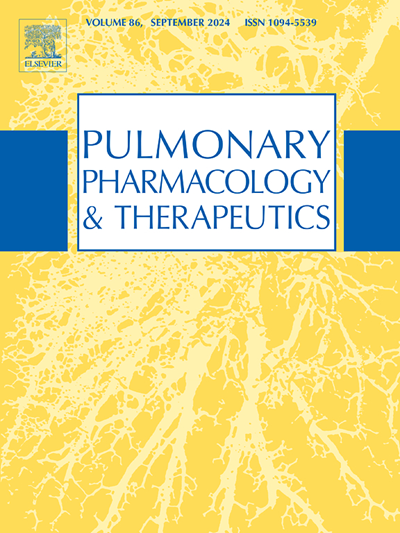Clinical efficacy of inhaled corticosteroids in equine asthma: A meta-analysis and number needed to treat
IF 2.8
3区 医学
Q2 PHARMACOLOGY & PHARMACY
引用次数: 0
Abstract
Equine asthma, a prevalent chronic inflammatory condition affecting the equine population, significantly compromises the performance and quality of life in affected horses. Inhaled corticosteroids (ICS) are often the first-line pharmacological intervention due to their potent anti-inflammatory properties. This meta-analysis investigates the clinical efficacy of ICS in treating equine asthma, emphasizing the number needed to treat (NNT) and the likelihood of achieving a clinical response. A comprehensive literature search identified relevant studies comparing ICS with placebo (PCB) controlled treatments. Data were synthesized from four clinical trials involving 252 asthmatic horses. Results indicate an overall NNT of 3.2 (95 % CI 2.3–4.7), meaning that approximately three horses must be treated with ICS for one to achieve a significant clinical response. Additionally, the relative risk of achieving clinical improvement with ICS versus PCB was 1.73 (95 % CI 1.47–2.02), demonstrating a marked increase in therapeutic effectiveness. Subgroup analysis revealed an NNT of 3.0 for severe cases, underscoring the efficacy of ICS across different severity levels. Despite potential biases noted in some studies, sensitivity analyses confirmed the robustness of these findings. The GRADE assessment rated the quality of evidence as high. These results highlight the therapeutic value of ICS in managing equine asthma, providing evidence-based recommendations for their clinical use. Future research should explore long-term outcomes and potential synergistic effects of ICS combined with other treatments to enhance clinical efficacy in managing equine asthma.
吸入皮质类固醇治疗马哮喘的临床疗效:一项荟萃分析和治疗所需的数量。
马哮喘是一种影响马群的普遍慢性炎症性疾病,严重影响马的表现和生活质量。吸入皮质类固醇(ICS)通常是第一线的药物干预,由于其有效的抗炎特性。本荟萃分析调查了ICS治疗马哮喘的临床疗效,强调了治疗所需的数量(NNT)和实现临床反应的可能性。综合文献检索确定了比较ICS与安慰剂(PCB)对照治疗的相关研究。数据来自252匹哮喘马的四项临床试验。结果显示总体NNT为3.2 (95% CI 2.3 - 4.7),这意味着大约三匹马必须接受ICS治疗才能获得显著的临床反应。此外,ICS与PCB实现临床改善的相对风险为1.73 (95% CI 1.47-2.02),表明治疗效果显着提高。亚组分析显示,重症病例的NNT为3.0,强调了ICS在不同严重程度上的疗效。尽管在一些研究中指出了潜在的偏差,但敏感性分析证实了这些发现的稳健性。GRADE评估将证据质量评为高。这些结果突出了ICS在治疗马哮喘方面的治疗价值,为其临床应用提供了循证建议。未来的研究应探索ICS联合其他治疗方法的长期疗效和潜在的协同效应,以提高治疗马哮喘的临床疗效。
本文章由计算机程序翻译,如有差异,请以英文原文为准。
求助全文
约1分钟内获得全文
求助全文
来源期刊
CiteScore
6.20
自引率
0.00%
发文量
41
审稿时长
42 days
期刊介绍:
Pulmonary Pharmacology and Therapeutics (formerly Pulmonary Pharmacology) is concerned with lung pharmacology from molecular to clinical aspects. The subject matter encompasses the major diseases of the lung including asthma, cystic fibrosis, pulmonary circulation, ARDS, carcinoma, bronchitis, emphysema and drug delivery. Laboratory and clinical research on man and animals will be considered including studies related to chemotherapy of cancer, tuberculosis and infection. In addition to original research papers the journal will include review articles and book reviews.
Research Areas Include:
• All major diseases of the lung
• Physiology
• Pathology
• Drug delivery
• Metabolism
• Pulmonary Toxicology.

 求助内容:
求助内容: 应助结果提醒方式:
应助结果提醒方式:


